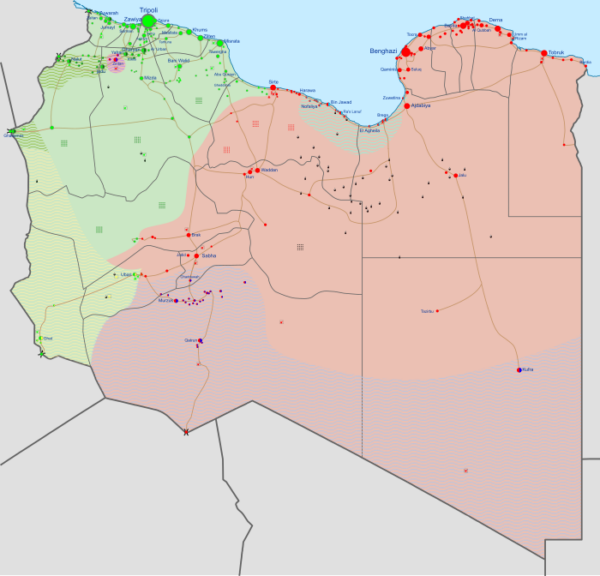Flash flooding in Libya has killed thousands of people and left at least 10,000 unaccounted for. As of Tuesday, emergency services on ...
Flash flooding in Libya has killed thousands of people and left at least 10,000 unaccounted for. As of Tuesday, emergency services on the ground say that at least 2,300 people have died, and that number is expected to rise.
The flooding was caused by heavy rain brought on by Cyclone Daniel, which has proven to be the deadliest Mediterranean storm on record. Daniel battered much of the eastern Mediterranean for roughly a week and killed several dozen people across Greece, Bulgaria, and Turkey before dissipating over Egypt on Tuesday.
However, northeastern Libya has taken the brunt of the damage, particularly the coastal city of Derna, home to about 90,000 people. Libyan officials report that the area received nearly 16 inches of rainfall on Sunday and Monday – in a typical year the city gets less than 11.
The storm caused two dams south of the city to collapse, resulting in an overflow of the Wadi Derna river and 10 foot high floodwaters, according to eyewitnesses.
“The damages are very serious,” Issam Abu Zureibah, the interior minister for the Tobruk government in eastern Libya, told Saudi media. “There are areas that were swept away entirely into the sea.”
Libya has been divided by rival factions since the U.S.-backed overthrow of dictator Muammar Gaddafi in 2011, and internal conflicts appear to have led to a serious neglect of local infrastructure, which likely contributed to the collapse of the dams.

Image by Ali Zifan Via Wikimedia Commons
Derna has also traded hands several times – the city briefly fell under the control of the Islamic State terror group in 2014 before they were ousted by another Islamist group the following year. The Libyan National Army, which controls much of eastern Libya, took control of the city in 2019 after months of fighting. According to Jalel Harchaoui, an associate fellow at the London-based Royal United Services Institute for Defense and Security Studies, the LNA has been distrustful of the locals ever since.
“This mistrust might prove calamitous during the upcoming post-disaster period,” he said.
The LNA government, as well as its U.N.-backed, Tripoli-based rival and various international aid groups such as the Red Crescent, have offered aid to the city, but many of the roads into and out of Derna have been badly damaged, hampering evacuation efforts and slowing the emergency response.